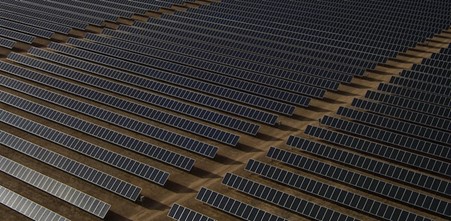Noah Crispi works in the utility scale solar arena, collaborating on projects over 100MW. In the following article, Noah Crispi discusses how large scale solar creates jobs, tax revenue and cost savings, to name just a few benefits.
People often have differing opinions on how much focus, time, and government money should go toward developing sustainable energy. Can the combination of widespread economic benefits and increased social justice for low-income communities help decrease the divide?
Utility-scale solar projects can allow those unable to install residential solar panels to share in cost savings on energy. They can also bring new jobs and funds to low-income communities, which are often target locations for these developments. In addition, utility companies gain new opportunities to balance energy grids and improve their public image.
Noah Crispi provides an overview of some of the many economic benefits that utility-scale solar has to offer and its promising potential for future growth.
Noah Crispi Explains Utility-Scale Solar
While switching to solar can save on utility bills in the long run, rooftop panels can be expensive and difficult for families to install. They may also not even be an option for renters or those who live in apartment buildings. As a result, low-income communities are often at a disadvantage when it comes to accessing clean energy and the associated economic benefits.
Unlike residential solar panels, which are often installed on the rooftop of a single-family home, utility-scale solar systems operate on a much larger scale, generating energy that is then channeled through a utility company for distribution throughout a region or community.
Noah Crispi explains that on the large scale, utility solar farms can power hundreds of homes or businesses. On the small scale,
community solar farms are often maintained by residents and businesses of a community, which then share the economic benefits they yield.
Utility-Scale Solar and Social Justice
Noah Crispi says that the importance of energy to life in the modern world combined with its high price can often leave low-income households spending an outsized portion of their income on utility bills, often channeling money away from other necessities.
One of the major benefits of community solar programs is that they provide a way for those unable to own or access residential solar panels to share in the economic and environmental benefits of generating solar energy.
While a high “energy burden,” the portion of a household’s income spent on energy, can depend on factors such as the age and size of a home, regional weather patterns, and price per kilowatt of electricity, low-income neighborhoods are typically the hardest hit in any given district.
Both the Office of Energy Efficiency and Renewable Energy (EERE) and the Solar Energy Industries Association (SEIA) specifically include the intention to promote diversity, equity, and justice by bringing new jobs and energy advancements to areas that have historically been dismissed by the energy sector and left to face a disproportionate level of pollution.
Utility-Scale Solar and New Income Opportunities
Noah Crispi notes, that in addition to lowering consumer costs, new utility-scale and community-based solar programs can bring a diverse set of local jobs to low-income communities. Along with construction workers, these projects require workers to plan, scale, design, and oversee their development, offering temporary and long-term opportunities in several specialized fields.
Large-scale solar collectives also have important potential benefits for farmers and rural stakeholders heavily impacted by climate change and ecological disasters. By leasing land to utility companies and community shareholders, farmers may increase their income by
several thousand dollars per year, often on land that had previously lain unused.

Benefits of Large-Scale Solar for Utility Companies
In addition to reducing energy costs and creating new jobs for individual households and community members, utility-scale solar projects can also benefit utility companies in a number of different ways, explains Noah Crispi.
In a practical economic sense, utility companies can benefit from new solar farming and community solar projects by strategically locating these plants to help balance the energy grid, which can help to reduce the costs of maintenance and repairs on grid sectors in particularly energy-demanding areas.
These projects can also benefit utility companies politically by helping them to meet increasing sustainability requirements and regulations. Policymakers’ endorsements and federal and state government support can also boost the companies’ business goals and make them more likely to receive assistance in future problem resolutions and project proposals, reports Noah Crispi.
Increasing community involvement can also help to improve a utility company’s reputation in the public eye by encouraging inclusive social participation and clearer lines of communication with those who use their services.
As the sustainable energy movement continues to grow, various future projects are already taking shape, many of which offer symbiotic partnerships between utility companies and other key players in the national and international business economy.
Conclusion
Advancements in utility-scale solar projects have been shown to yield benefits not only for the planet, but also for local economies. By increasing access to reduced-cost energy, creating new jobs in under-resourced communities, and helping to balance the energy production grid, large scale solar projects are a promising addition to the growing movement toward cleaner energy.
